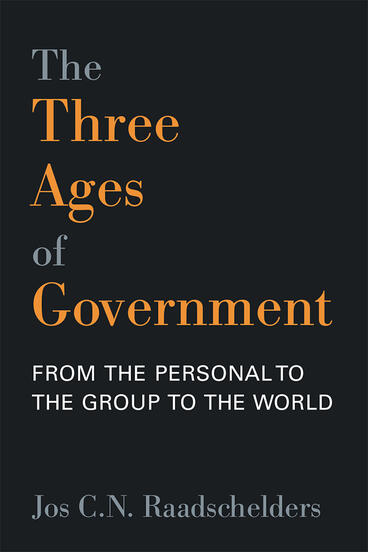The Three Ages of Government
From the Person, to the Group, to the World
Subjects into citizens—understanding the role of government in democracies
Description
It is only in the last 250 years that ordinary people (in some parts of the world) have become citizens rather than subjects. This change happened in a very short period, between 1780 and 1820, a result of the foundations of democracy laid in the age of revolutions. A century later local governments embraced this shift due to rapid industrialization, urbanization, and population growth. During the twentieth century, all democratic governments began to perform a range of tasks, functions, and services that had no historical precedent. In the thirty years following the Second World War, Western democracies created welfare states that, for the first time in history, significantly reduced the gap between the wealthy and everyone else. Many of the reforms of that postwar period have been since rolled back because of the belief that government should be more like a business. Jos C.N. Raadschelders provides the information that all citizens should have about their connections to government, why there is a government, what it does, how it does it, and why we can no longer do without it. The Three Ages of Government rises above stereotypical thinking to show the centrality of government in human life.
Jos C.N. Raadschelders is Professor, Associate Dean for Faculty, and Faculty Director of Professional Development Programs at The Ohio State University.
Reviews
“A master of history and a maestro of words, Raadschelders tackles a question that is seemingly pedantic, but actually profound: ‘What is government?’ His exploration of the ever-evolving role of government in society informs our understanding of the past and inspires our hopes for the future.”
- Tina Nabatchi, Syracuse University
—Tina Nabatchi, Syracuse University
“The Three Ages of Government is stunning in breadth, multidisciplinary scope, and erudition. Raadschelders’s social ontological framework, analyses, and arguments show how and why governing institutions adapt to societal changes, yet are still affected by humans’ biological, tribal, and (now) global roots. He compellingly demonstrates the centrality of political-administrative dynamics to human coexistence, state-building, and governance throughout world history.”
- Robert F. Durant, Professor Emeritus, The American University
—Robert F. Durant, Professor Emeritus, The American University
“Government needs to make a difference to society by being significantly part of solutions to societal problems. If not, government becomes part of the problem. Raadschelders describes convincingly how government changes its nature to remain part of the solution. This book is indispensable to understand how public administration is part of that changing solution.”
- Geert Bouckaert, KU Leuven Public Governance Institute
—Geert Bouckaert, KU Leuven Public Governance Institute
“. . . compelling and informative, sweeping and comprehensive.”
- Brian Waddell, University of Connecticut
—Brian Waddell, University of Connecticut
“. . . an important and impressive work from one of the very big names in the contemporary study of public administration.”
- Edward Page, London School of Economics
—Edward Page, London School of Economics
News, Reviews, Interviews
Reviewed by Christopher Atkinson in the International Journal of Public Administration

